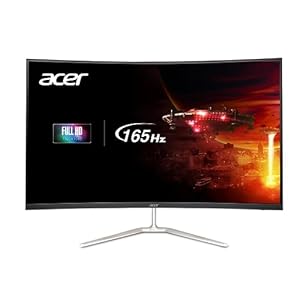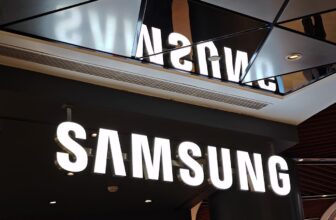For years, the main point of my base iPhone reviews has been that it’s a solid, all-around phone that’s perfect for the average smartphone user, with one key missing feature that’s difficult to excuse, any way you look at it — 120Hz ProMotion.
While a higher refresh rate display is the type of feature not everyone notices immediately, once you’ve used a device with a silky smooth screen, it’s nearly impossible to go back. Add in the fact that most Android devices, including even those on the entry-level side, feature at least a 90Hz display, and Apple locking ProMotion to its Pro iPhones has felt like a gatekeeping cash-grab for a long time now.
Among other notable upgrades, with the iPhone 17, that’s thankfully no longer the case, making it one of 2025’s top smartphones for the price.
- Brand
- Apple
- SoC
- A19
- Display
- 6.3-inch 2622 x 1206 pixel resolution Super Retina XDR
- Storage
- 256GB, 512GB
- Ports
- USB-C
- Operating System
- iOS 26
This year, the iPhone 17 gets the biggest upgrade
The improvements don’t stand out, but they matter
While the iPhone 17 Pro offers top-tier camera performance just like in years past, and the iPhone Air gives us a limited but still compelling glimpse at Apple’s future iPhone plans, the iPhone 17 is arguably this year’s most upgraded iPhone, despite being by far the least flashy. Apple has refused to bring ProMotion to its base flagship since its launch back in 2022, despite the fact that even entry-level Android phones have featured higher refresh rate displays for several generations, including most recently, Google’s excellent Pixel 9a and Pixel 10.
So what does ProMotion actually do? It’s a bit difficult to describe and is the type of upgrade you need to see in person to appreciate, but on a basic level, the scrolling experience on the iPhone 17’s 6.3-inch screen is much smoother. The choppy movement that ruined the iPhone 16’s display for me just isn’t a problem on the iPhone 17. Everything from rapidly flipping between apps and doom-scrolling social media, to navigating iOS 26’s flashy Liquid Glass UI and its fun animations (which I actually really like, by the way), feel incredibly smooth. Once you’ve used a phone with a higher refresh rate, you truly can’t go back.
Adding to this is the addition of an always-on display for the first time now that the phone now features a variable refresh rate display, allowing the screen to dip down to 1Hz to save battery and ratchet it all the way up to 120Hz when necessary. This means that, like the iPhone 17 Pro, when you set the iPhone 17 down, the screen dims and, depending on your settings, a faded-out version of your wallpaper, widgets, and notifications appears. I turned off the wallpaper to save a bit more battery life, giving the phone a cleaner black and white look. Even though I’m not that big on always-on smartphone screens, I’ve appreciated being able to glance at the iPhone 17 to check the time and to see how many notifications I have, and I think others will, too.
Unfortunately, the phone still features sizable bezels compared to the iPhone 17 Pro, but this is the sort of shortcoming I’d expect from a base-level phone. On the plus side, the screen is slightly bigger at 6.3-inches compared to 6.1-inches, though during my time with the iPhone 17 so far, I haven’t really noticed the size change.
The all-important selfie shooter gets a big bump
In a lot of ways, camera performance is comparable to the iPhone 17 Pro
While the iPhone 17 Pro/Pro Max are better suited for avid photographers thanks to their triple camera setup, the iPhone 17 has stepped its game up this year. Its main f/1.6 48-megapixel shooter still shines when it comes to low-light, especially in the context of a base phone, and the ultra-wide shooter has been upgraded to an f/2.2 48-megapixel sensor from the f/1.9 12-megapixel shooter in the iPhone 16, though the image quality improvement isn’t substantial.
Ultra-wide photos are a bit more vibrant, but you really need to look closely to see the difference. I would have preferred Apple ditched the ultra-wide for an optical zoom lens, though just like last year, the 2x sensor crop zoom offered by the iPhone 17’s main shooter is still solid.
The Selfie shooter has also been updated to f/1.9 18-megapixels with Center Stage, just like the rest of the iPhone 17 series, offering crisp and detailed shots under a wide variety of light. Center Stage uses a square image sensor instead of the more traditional rectangle, allowing you to flip between portrait and landscape photos on the fly and after you shoot the image, all without changing the phone’s orientation.


It’s a minor addition, but I’ve found it to be a really useful feature, especially as I slowly admit defeat and start snapping more photos in portrait orientation. I don’t take selfies often, but when I do snap them, I’ve grown to appreciate this versatility.
Everything else
The A19 chip, faster wireless charging, and more starting storage
There are other minor updates, too, including Apple’s powerful A19 chip (the A19 Pro is saved for the iPhone 17 Pro and iPhone Air). Apple’s chips have been overkill for years, so the base A19 is more than powerful enough for most people. Wireless charging has also been kicked up to 25W, allowing you to get to 50% in just 30 minutes, making it easy to quickly top up the phone’s battery life. And finally, starting storage is doubled to 256GB. Similar to ProMotion, Apple has stuck with 128GB with its base iPhone for years, a brutal amount of storage by 2025 standards, especially compared to nearly every modern Android phone out there. I know most people likely subscribe iCloud storage at this point, but still, 128GB of physical storage was laughably bad.
For the first time, the base iPhone doesn’t feature any notable compromises, making the iPhone 17 one of the most complete smartphone packages Apple has ever released.
For what you get with the iPhone 17 this year, $800 is a solid price, and for the first time, upgrading to the $1,100 iPhone 17 Pro doesn’t feel worth it. To justify the cost, you really need to be into photography or need the extra power the A19 Pro chip offers. For the first time, the base iPhone doesn’t feature any notable compromises, making the iPhone 17 one of the most complete smartphone packages Apple has ever released.
Trending Products

Wireless Keyboard and Mouse Combo, ...

ASUS Vivobook Go 15.6” FHD Slim L...

HP 14″ HD Laptop | Back to Sc...

ASUS TUF Gaming GT502 ATX Full Towe...

Lenovo New 15.6″ Laptop, Inte...

Acer Nitro 31.5″ FHD 1920 x 1...

Logitech Signature MK650 Combo for ...

Acer Chromebook 314 CB314-4H-C2UW L...

HP 14″ Ultral Light Laptop fo...











